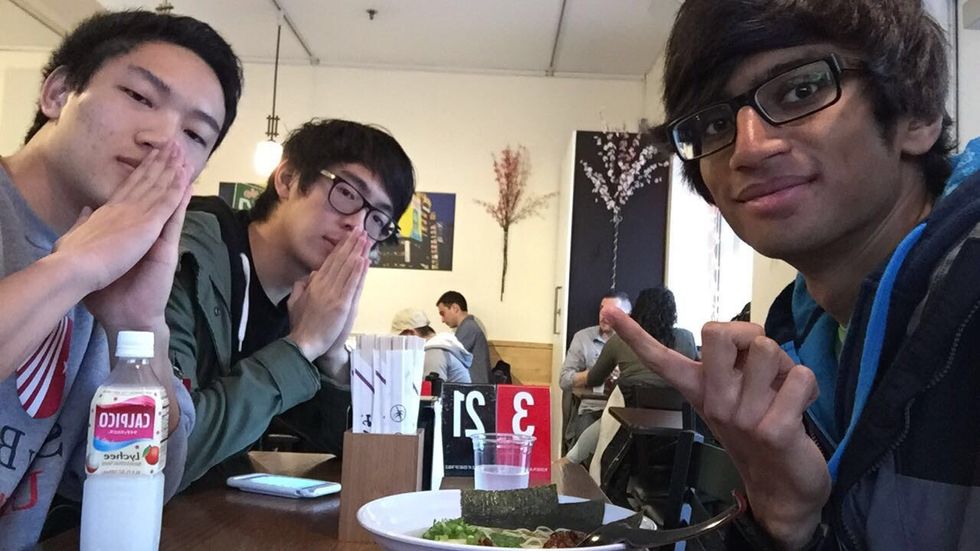I was born in Oakland, California, in a poor apartment complex where my neighbors were all black. After moving around for the next few years, my family settled in Miller Place, New York; this is where I grew up, from when I was 5 to when I was 18. Miller Place was (is) almost entirely white.
I had nobody to relate to me about growing up in an Asian home but in a white community. Jokes about my race, the color of my skin, the food I ate, the size of my eyes, the color of my hair, and even the content of my character were normalized to the point where I even defended them. My immigrant parents made it abundantly clear to me that they would not budge on my upbringing—they made it clear that this was a Chinese home, and if I wanted to sleep under their roof, I would respect that.
Still, I resisted in little ways. I wanted to play outside on Sundays, so I quit Chinese school. I wanted to hang out with friends, so I quit the piano. I wanted to play baseball like all the other boys.
I wanted to be white.
There were nights I fought so hard, screamed so hard, cried so hard, wishing I could do anything to change the color of my skin and the spelling of my last name. I just wanted to belong.
For 13 years I lied to myself until I truly believed that it was just my lot in life to grow up Asian-American in a small, suburban, white town. But during my senior year of high school, I began to hope. I decided to go to Stony Brook University, where the demographics were significantly more skewed towards Asian/Asian-American populations. And I thought to myself, "Finally, I'll make friends that understand me. They won't make jokes about my race, they won't reduce my identity to it, because they will understand me just the same." Isn't that such a wonderful dream?
Instead, the closest friends I made—yes, Chinese-Americans like me—discriminated against me, too. My Mandarin is awful. I barely know the differences between the different tones, and I can't read or write. I don't know any Cantonese, nor do I know any other dialect of Chinese. I didn't watch any Korean dramas because none of my friends did. I don't hold chopsticks properly because I had to teach myself how. I learned that being left-handed was something to be looked down on in some Chinese superstitions and that I should have learned to be right-handed.
Having mostly only eaten my mother's cooking (no authentic Chinese restaurants in a town like Miller Place), there were lots of Chinese foods that I had never eaten or even heard of. My knowledge of Chinese history is nonexistent, as is my knowledge of China's geography. (My parents are from this province—wait, you've never heard of it? How can you even call yourself Chinese, hahaha!)
I learned that among them, I wasn't Asian-American enough. So if I didn't belong among white Americans that I grew up with, and I couldn't even speak the language of immigrant Chinese students, and I wasn't Asian-American enough for my friends at Stony Brook... where did I belong?
I've come to realize that there is no true Asian-American. It is not an identity. And I can prove it to you like this—what does an Asian-American listen to? What does an Asian-American eat, or drink? What language does an Asian-American speak? Where does an Asian-American live? What does an Asian-American wish for? What does an Asian-American believe in?
But I want the words to carry weight. I want them to mean something. I want to be able to say proudly, "I am an Asian-American and nobody can take that away from me." And even if that isn't a reality today, I want my voice to be part of the discussion—I want my life to reach the ears of others, that maybe this would become something worth talking about—finally.

















